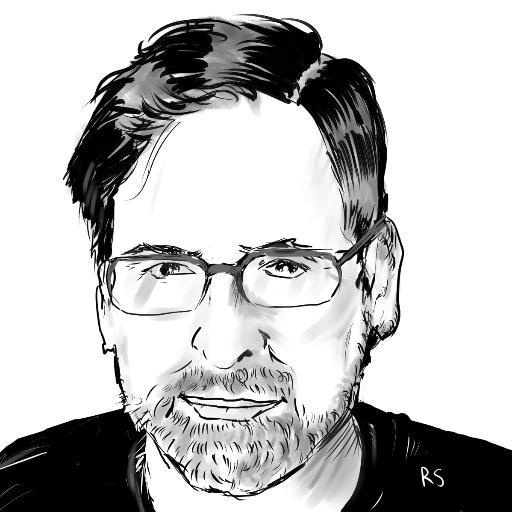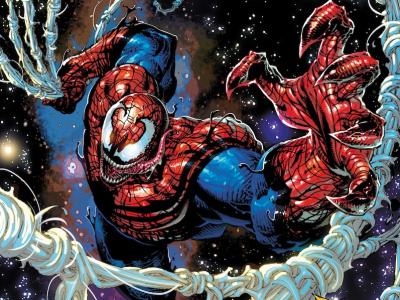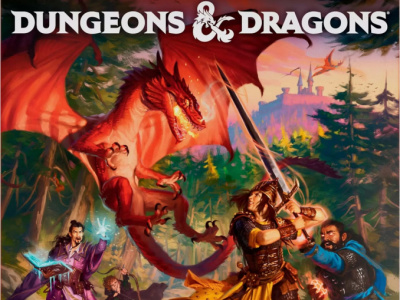I thought it would be violence. After 9/11 and Columbine, I figured the thing most likely to derail a fan event would be the credible threat or, horribly, an actual act of terrorism. I didn’t suspect the real culprit would be something much, much smaller. Specifically, the smallest life-form we know of, a virus.
Nevertheless when ReedPOP announced on Friday that the 2020 edition of Emerald City Comic Con would be postponed (see "Emerald City Comic Con Postponed Over Coronavirus Concerns"), it felt inevitable. The Seattle area was the site of the first discovered cases of the COVID-19 coronavirus in the U.S., and the first fatalities, so it was also the epicenter of fear. In the end, fear proved more of a motivator than anything else, and it pushed three reluctant parties – the City of Seattle, ReedPOP, and its insurers – into making a difficult but responsible decision.
Now, four days later, a move that seemed drastic in the moment looks better and better as more events fall into line with an emerging consensus in the public health community.
Fear the Walking Dead. As soon as cases of the novel coronavirus started appearing in the Seattle region, ECCC didn’t have a chance. Publishers, guests and exhibitors started pulling out and it felt like the show was in a death spiral. Though there was not yet a consensus about the actual dangers of COVID-19, the cancelations themselves doomed the show. Why would attendees risk showing up if their favorite artists and celebrities were MIA, the biggest booths absent from the floor, and dozens of programs cancelled?
Throughout the week, ReedPOP appeared determined that the show should go on, even as it offered refunds to concerned attendees. That position came under a lot of fire, but let’s look at what was at stake.
ECCC sold nearly 100,000 tickets in 2019 and brought an estimated $15 million to Seattle over its four-day run. Beyond the top line aggregate, the event represents a huge revenue opportunity for the hundreds of vendors, artists and exhibitors, money some of these folks were counting on to get them through the spring. That’s why so many smaller retailers were holding off canceling their booths, even with the prospect of ECCC 2020 being a shadow of its usual self.
Even after several big exhibitors, notably Dark Horse Comics, Penguin Random House and Oni Press, pulled out and the guest cancellations started to pile up, ReedPOP understandably did not want to leave its partners in the cold, especially without a clear mandate from civic authorities.
Maintaining "Social Distance." One big reason for the delay in calling a halt to ECCC may have been the peculiar reluctance of Seattle and Washington authorities to provide any definitive guidance.
On Wednesday, Seattle Mayor Jenny Durkan told BBC World News "We don't [want to spread panic… And that's actually -- King County officials will be making the final determination on that particular public event. We have advised for everyone in the city to really look at whether there's a necessary requirement to have meetings that we have in the city. And if not, we're not having those meetings. And so I think that all of us officials are relying on our public health people to tell us when it is the time to say 'No more public events.' And we'll be working very closely with public health officers, as well as the county officials and the state officials so that we can stay unified on those decisions."
In other words, "We’re not cancelling it exactly – at least not until we can get political cover from our public health folks– but we are urging anyone with any sense to stay the hell away." Leadership in action, folks.
That put ReedPOP in a tough position. Some event industry experts have suggested that, absent a public order to cancel the show, it is difficult to collect on any kind of insurance covering commitments to the venue and to others under contract, as those claims typically need to be triggered by a "force majeure" such as an emergency declaration. Without formal action by the city, Reed was left with the decision of whether to pull the plug and be on the hook for millions of dollars to the venue and other stakeholders, or move forward with the event with the whole local government looking on in classic Seattle-style passive-aggressive disapproval.
Seeing that ReedPOP’s initial position of holding the show but offering refunds on badges wasn’t enough to satisfy anyone, the two sides reached an agreement to "postpone" rather than cancel the show after "many hours of conversation internally and consultation with local government officials and the tourism bureau," according to ReedPOP’s announcement to ECCC ticketholders and exhibitors on Friday.
"We know that this decision is going to greatly impact many of our individual creators, small businesses and service workers," wrote ReedPOP. "To those whose careers depend on ECCC – we will do everything that we can over the coming days and weeks to highlight your work and we ask that our entire community support you as we realize your personal livelihoods may be impacted."
Wondering About WonderCon? The spectacle of hitting pause on a show as large and impactful as ECCC sets a sobering example for the rest of the event space. The response of other events and organizers over the next few weeks is a litmus test for how sturdy the fan event space is in light of an existential challenge.
This past weekend at the more intimate San Diego Comic Fest, I ran a panel with SDCC Chief Strategy and Communication Officer David Glanzer. At the outset, he emphasized a view that is, or should be, held by every event executive, that fan safety comes first. And while we didn’t dwell on the topic of postponements and cancellations, it was the 800-pound gorilla in the room, and Glanzer did address it.
The bottom line: if Comic-Con International has contingency plans for either SDCC or the fast-approaching WonderCon, they’re not talking about it publicly for the time being. As far as organizers are concerned, WonderCon is full speed ahead, and SDCC is rolling forward with their guest list and other announcements.
Before anyone criticizes that (or any decision to move forward with a large event), remember that avoiding panic and overreaction in a crisis, especially without facts in hand or expert guidance, is also a responsible position. Triggering the self-destruct sequence is meant as a last resort, not a first option.
On Saturday, it was reassuring to hear someone projecting calm in the face of fear. But if experts agree that all public events in the spring need to be shuttered to prevent a catastrophe, expect Comic-Con to revisit its position.
Tales of the Unexpected. Behind all this and unspoken in the conversation about event cancellations is a problem of money, specifically the influence of big money players with broad exposure to the market, such as insurance companies and banks.
Large public events pose inherent risks even when we’re not worried about mysterious viruses. Event organizers absorb some of that risk and cost on behalf of their exhibitors and go to great lengths behind the scenes to head off predictable threats. Comic-Con, for example, keeps a year’s worth of receipts on the books as a backstop in case they need to cancel a show.
For cases where the situation is truly beyond their control, there’s insurance to prevent organizers from losing their shirts. The companies that write those policies price them using risk-assessment formulas that are intended to protect their own financial interests: that’s how insurers make money.
But a pandemic, or whatever we’re calling the COVID-19 outbreak these days, puts the whole system under stress. When an ECCC cancels the same week as the South by Southwest music and technology festival in Austin, followed by the massive Coachella festival in California, insurers and the reinsurers who backstop them are looking at writing big, big checks.
It’s not necessarily that they want large numbers of people to die because festivals that should be cancelled get held anyway to stave off financial ruin. But if they can avoid making payouts by leaning on local governments to stop short of actually ordering an event closed, thereby putting all the onus on the organizers, it’s clearly in their financial interests to do so, even if their one job in the whole process is to mitigate risk for the companies paying them stiff premiums for peace of mind.
Consequently, ECCC is not officially cancelled. It has been "postponed" to some date in the future, in the hopes that the city of Seattle, ReedPOP, exhibitors, guests, fans and the Washington Convention Center can find some mutually convenient date later in the year that doesn’t add to the pile-up of big West Coast conventions over the summer.
And, of course, assuming that the Coronavirus situation is contained by then, no new source of systemic uncertainty has taken its place, and we’re not mired in a crippling economic downturn.
Strap in folks. It’s going to be a bumpy year.
The opinions expressed in this column are solely those of the writer, and do not necessarily reflect the views of the editorial staff of ICv2.com.
Rob Salkowitz (@robsalk) is the author of Comic-Con and the Business of Pop Culture.

Column by Rob Salkowitz
Posted by Rob Salkowitz on March 10, 2020 @ 4:22 pm CT
MORE COMICS
'Venom' #252 to Feature Backup Story with New Suit, Plus New Story by DeFalco and Frenz
August 4, 2025
Venom #252 will feature a backup story about Venom’s new suit as well as a backup story by Tom DeFalco and Ron Frenz, the creators of the symbiote suit.
Showbiz Round-Up
August 4, 2025
The post-SDCC showbiz news is still spicy a week after the show's conclusion. It's time for another round-up!
MORE COLUMNS
Column by Scott Thorne
August 4, 2025
This week, Scott Thorne addresses some comments on last week's column and the right price for starter products.
Column by Scott Thorne
July 28, 2025
This week, columnist Scott Thorne comments on the Edge of Eternities prerelease and on Magic: The Gathering news from the Hasbro earnings report.










